Requires the owner or operator of a publicly owned treatment works to monitor PFAS levels, as defined in the bill, in effluent, influent, and biosolids at least quarterly and report all such monitoring data on an applicable discharge monitoring report required by federal regulations. The bill requires DEQ, in certain circumstances, to develop a PFAS action plan to identify and address sources of certain PFAS detected in a public water system's raw water source, perform outreach efforts regarding PFAS contamination, report annually on its activities, and work with certain entities in developing its PFAS action plans. The bill requires certain facilities that manufacture or use PFAS to report the use of such chemicals to the Department and to monitor such PFAS at least quarterly unless at another frequency at the direction of the Director of DEQ. Also directs DEQ and VDH to jointly establish a PFAS Advisory Committee to assist with PFAS-related activities and to report annually to the Governor and the General Assembly. Same as SB 243. https://lis.virginia.gov/cgi-bin/legp604.exe?241+sum+HB1085
Virginia Legislative Tracking Summary
With the 2024 Legislative year beginning, the Water Utility Committee will post bills below for your information and review.
The bills listed below are specific to Drinking Water and Water Utilities. For a complete list of bills involving groundwater, wastewater, stormwater, etc., along with the Budget Supplements, download the weekly report.
Note: Descriptions summarize bills as introduced. Due to amendments throughout the legislative session, the substance of the bill following the introduction may differ from the summary description. Please refer to the bill text for current provisions. Links are provided for your convenience.
Key Dates
Jan. 10 – Session convenes; pre-filed bill introduction deadline
Jan. 12 – Budget amendment and bill drafting request deadline (5pm)
Jan. 19 – Last day to introduce legislation (3pm)
Feb. 13 – Crossover deadline; beginning Feb. 14 each house may only consider the other’s bills
Feb. 28 – Each house to complete work on other house’s Budget Bill and appoint conferees
Mar. 9 – Adjournment Sine Die
April TBD – Reconvened Session (“Veto Session”)
Jan. 12 – Budget amendment and bill drafting request deadline (5pm)
Jan. 19 – Last day to introduce legislation (3pm)
Feb. 13 – Crossover deadline; beginning Feb. 14 each house may only consider the other’s bills
Feb. 28 – Each house to complete work on other house’s Budget Bill and appoint conferees
Mar. 9 – Adjournment Sine Die
April TBD – Reconvened Session (“Veto Session”)
Virginia Legislative Session Summary
At the session's conclusion, the Water Utility Committee will host Chris Pomeroy with AquaLaw to provide a summary of the proposed legislation, which passed, failed, and might come back at a future date. Join us on Monday, March 18, from noon - 1 pm. You don't need to register, but click below to be emailed the meeting connection information.
Requires the owner or operator of a publicly owned treatment works to monitor PFAS levels, as defined in the bill, in effluent, influent, and biosolids at least quarterly and report all such monitoring data on an applicable discharge monitoring report required by federal regulations. The bill requires DEQ, in certain circumstances, to develop a PFAS action plan to identify and address sources of certain PFAS detected in a public water system's raw water source, perform outreach efforts regarding PFAS contamination, report annually on its activities, and work with certain entities in developing its PFAS action plans. The bill requires certain facilities that manufacture or use PFAS to report the use of such chemicals to the Department and to monitor such PFAS at least quarterly unless at another frequency at the direction of the Director of DEQ. Also directs DEQ and VDH to jointly establish a PFAS Advisory Committee to assist with PFAS-related activities and to report annually to the Governor and the General Assembly. Same as HB 1085.
https://lis.virginia.gov/cgi-bin/legp604.exe?241+sum+SB243
https://lis.virginia.gov/cgi-bin/legp604.exe?241+sum+SB243
Requires all facilities that have engaged, since January 1, 2021, in the manufacture of or knowing use in the production process of one or more chemicals listed as PFAS target analytes to produce a one-time report on the use of such chemicals. The report shall be limited to facilities that discharge to (i) a surface water under a VPDES permit issued by DEQ or (ii) a POTW under an industrial pretreatment program permit or other written authorization issued by a local permit control authority. The report shall be submitted to DEQ and, if such facility discharges to a POTW, also to the local permit control authority no later than Oct. 1, 2024. The bill also requires certain facilities to perform a limited PFAS discharge characterization during the one-year period from Oct. 1, 2024, to Sept. 30, 2025, for each waterway discharge outfall consisting of representative quarterly monitoring using the applicable laboratory test method, as specified in the bill. Such facilities shall report results to DEQ and, if the facility discharges to a POTW, also to the local permit control authority, within 30 days after the end of each quarter. Same as SB 462. https://lis.virginia.gov/cgi-bin/legp604.exe?241+sum+HB245
Requires all facilities that have engaged, since January 1, 2021, in the manufacture of or knowing use in the production process of one or more chemicals listed as PFAS target analytes to produce a one-time report on the use of such chemicals. The report shall be limited to facilities that discharge to (i) a surface water under a VPDES permit issued by DEQ or (ii) a POTW under an industrial pretreatment program permit or other written authorization issued by a local permit control authority. The report shall be submitted to DEQ and, if such facility discharges to a POTW, also to the local permit control authority no later than Oct. 1, 2024. The bill also requires certain facilities to perform a limited PFAS discharge characterization during the one-year period from Oct. 1, 2024, to Sept. 30, 2025, for each waterway discharge outfall consisting of representative quarterly monitoring using the applicable laboratory test method, as specified in the bill. Such facilities shall report results to DEQ and, if the facility discharges to a POTW, also to the local permit control authority, within 30 days after the end of each quarter. Same as HB 245. https://lis.virginia.gov/cgi-bin/legp604.exe?ses=241&typ=bil&val=sb462
Requires sewage treatment works, classified waterworks, and classified water treatment facilities to employ a licensed operator. The bill establishes protocol for an unexpected vacancy of the licensed operator position. The bill also permits remote monitoring of the facility by the licensed operator upon a demonstration of adequate monitoring technology. https://lis.virginia.gov/cgi-bin/legp604.exe?241+sum+HB220
Directs the State Water Control Board to waive the expiration of any ground water withdrawal permit for a well that serves exclusively residential users, is located in the Eastern Virginia Groundwater Management Area north of the Occoquan River, and is located within five miles of any commercial or industrial permitted ground water withdrawal. Provides that such waiver shall continue in force until the commercial or industrial permitted ground water withdrawals have been halted for five years. DEQ shall then assess whether the termination of the commercial or industrial permitted ground water withdrawals has substantially mitigated the stress upon the aquifer and redetermine whether the permit shall be renewed.
Requires the Board for Waterworks and Wastewater Works Operators and Onsite Sewage System Professionals, upon application, to recognize current and valid licenses or certificates issued by a neighboring state, defined in the bill, as fulfillment of qualifications for licensure as a waterworks and wastewater works operator in the Commonwealth if there are no pending investigations or complaints, no disqualifying criminal records, and no discipline imposed by another state. https://lis.virginia.gov/cgi-bin/legp604.exe?241+sum+SB554
Authorizes DEQ to utilize and incorporate comprehensive groundwater, surface water, and aquifer data in its decision-making processes related to the issuance and renewal of groundwater withdrawal permits and surface water withdrawal permits. Such data may include information relating to water levels, flow rates, and water quality. https://lis.virginia.gov/cgi-bin/legp604.exe?241+sum+SB581
Directs the Department of Environmental Quality and the State Water Control Board to prioritize the preservation of drinking water in all permitting and regulatory processes related to groundwater and surface water resources. https://lis.virginia.gov/cgi-bin/legp604.exe?241+sum+SB673
Requests that the Department of Environmental Quality complete a one-year study of the groundwater supply in the Commonwealth with technical assistance provided by the State Water Control Board. DEQ shall complete its meetings by Nov. 30, 2024, and submit to the Governor and the General Assembly an executive summary and a report of its findings and recommendations. https://lis.virginia.gov/cgi-bin/legp604.exe?241+sum+SJ25
Directs the Commissioner of Health to convene a work group to study the occurrence of microplastics in the Commonwealth's public drinking water and develop recommendations for the reduction of microplastics in the Commonwealth's public drinking water. The bill requires the work group to report its findings and recommendations to the Governor and the Chairmen of the House Committees on ACNR and Health, Welfare and Institutions and the Senate Committees on ACNR and Education and Health by December 1, 2024. https://lis.virginia.gov/cgi-bin/legp604.exe?241+sum+HB33
Directs the State Board of Health to adopt regulations to utilize point-of-use or point-of-entry drinking water treatment or filtration to remove or significantly reduce concentrations of contaminants of concern that meet or exceed any maximum contaminant level or health advisory for the same contaminant adopted by the U.S. EPA. The bill also establishes the Rural Water Supply Program and Fund to allow VDH’s Office of Drinking Water to test and treat contaminated drinking water for individuals on private wells and small rural public water systems. https://lis.virginia.gov/cgi-bin/legp604.exe?241+sum+HB1295
Requires DEQ to enforce a five-year moratorium on the issuance of any new groundwater or surface water withdrawal permits beginning July 1, 2024, except for permits that are for the purpose of providing drinking water for human consumption. https://lis.virginia.gov/cgi-bin/legp604.exe?241+sum+SB668

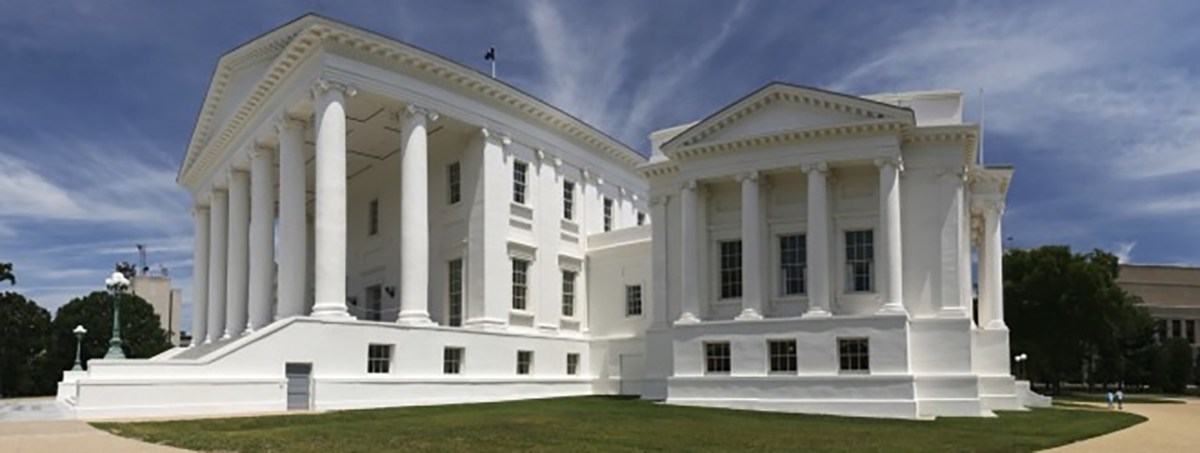



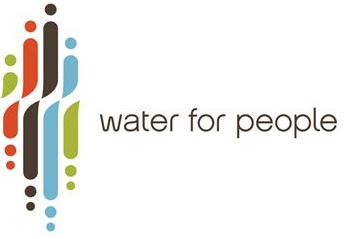
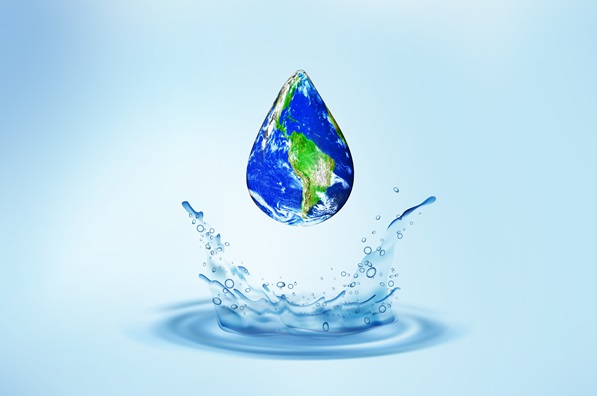



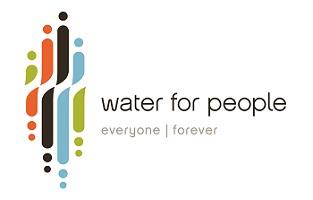



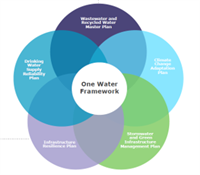
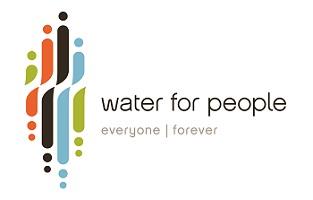

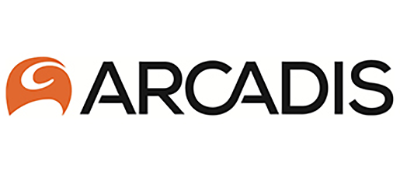






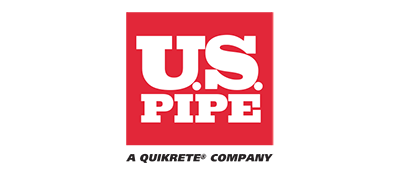



.png)



.png)

.png)
